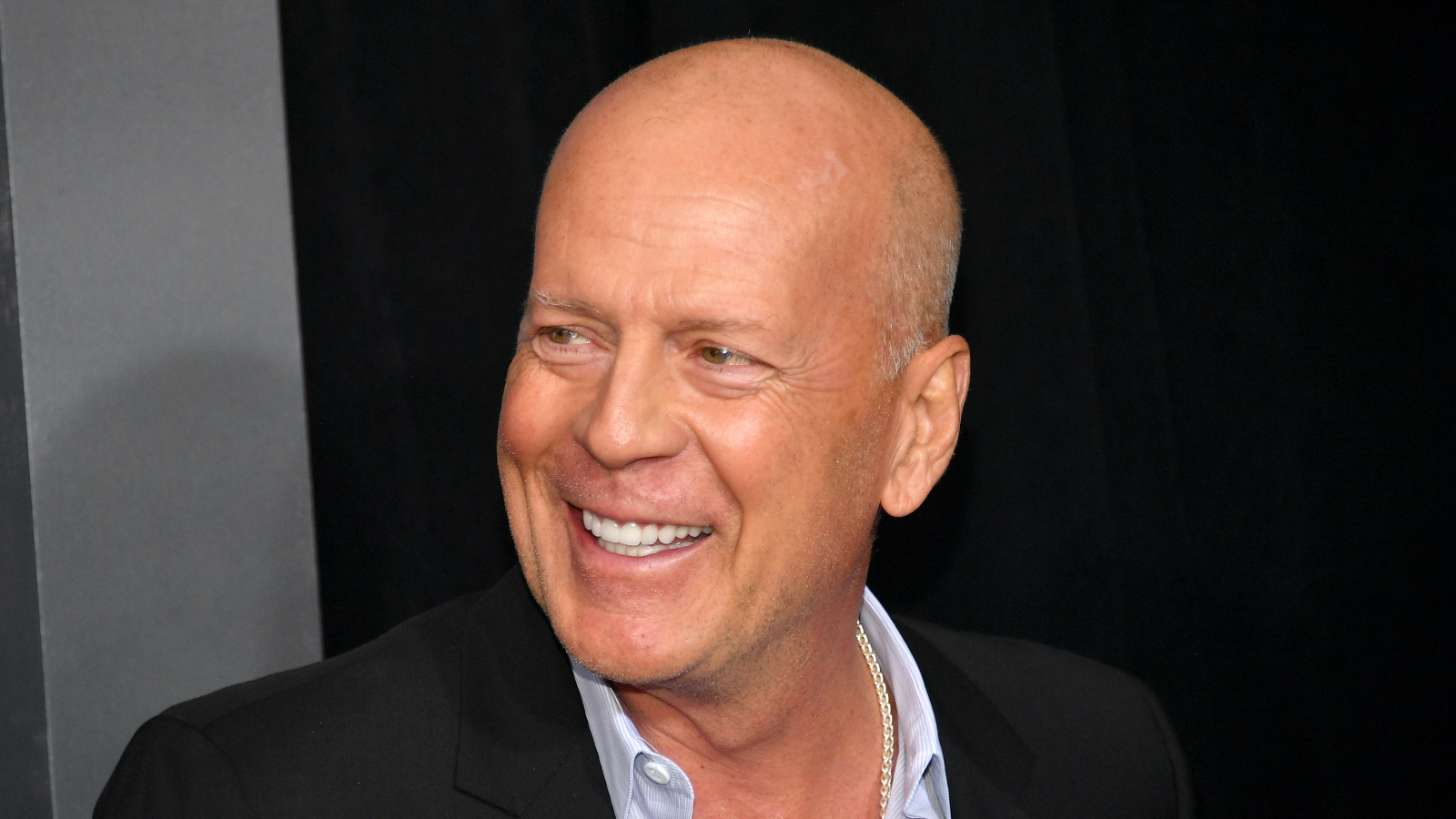Demi Moore addresses ex-husband Bruce Willis' dementia diagnosis in heartbreaking statement
Demi Moore reveals ex-husband Bruce Willis' dementia diagnosis in devastating statement on behalf of Bruce's wife and their daughters


Bruce Willis' dementia diagnosis has been announced in a statement on behalf of his ex wife Demi Moore, his wife Emma Hemming Willis and their daughters Rumer Willis, Scout Willis, Tallulah Willis, Mabel Willis, and Evelyn Willis.
The close-knit blended family shared the utterly heartbreaking diagnosis of frontotemporal dementia (known as FTD). This news comes only a year after Bruce, aged 67, retired from acting due to aphasia. After this, the actor and his family joined other celebs with aphasia, who have also put their public profile to use, in order to raise awareness of the disorder.
The Willis Moore clan's statement in full was shared on the Association for Frontotemporal Degeneration website. It reads, "as a family, we wanted to take this opportunity to thank you all for the outpouring of love and compassion for Bruce over the past ten months."
A post shared by Demi Moore (@demimoore)
A photo posted by on
It continues, "your generosity of spirit has been overwhelming, and we are tremendously grateful for it. For your kindness, and because we know you love Bruce as much as we do, we wanted to give you an update."
Although Demi Moore split from Bruce back in 2000, the pair, who share three beloved daughters, remained close and are often touted as a fantastic example of how to maintain a close family bond after divorce.
Demi and her daughters are very close with Emma, his second wife, and when Bruce Willis' wife opened up on his aphasia diagnosis back in 2022 - she paid tribute to her step-daughter Scout.
The family goes on to explain that since they announced Bruce’s diagnosis of aphasia in spring 2022, his condition has progressed and they now have the specific diagnosis of FTD.
Sign up for the woman&home newsletter
Sign up to our free daily email for the latest royal and entertainment news, interesting opinion, expert advice on styling and beauty trends, and no-nonsense guides to the health and wellness questions you want answered.
"Unfortunately, challenges with communication are just one symptom of the disease Bruce faces. While this is painful, it is a relief to finally have a clear diagnosis," continues the statement.

They discuss the 'cruel disease' that is the most common form of dementia for people under the age of 60.
Sadly there are no treatments for this disease, a reality that Bruce's family sincerely hopes will change in the years to come.
Even with the gravity of this news, the actor's family are eager to gain at least some positivity from their family's suffering. "As Bruce’s condition advances, we hope that any media attention can be focused on shining a light on this disease that needs far more awareness and research," the statement reads.

Bruce's family acknowledges that theirs is only one of countless families impacted by FTD, encouraging people to, "seek out the wealth of information and support available through AFTD." Adding, "and for those of you who have been fortunate enough to not have any personal experience with FTD, we hope that you will take the time to learn about it, and support AFTD’s mission in whatever way you can."
In a moving closing paragraph, the actor's family take pause to point out that Bruce is the kind of person who's always found joy in life and has helped everyone he knows to do the same.
"It has meant the world to see that sense of care echoed back to him and to all of us," reads the family's closing message. "We have been so moved by the love you have all shared for our dear husband, father, and friend during this difficult time. Your continued compassion, understanding, and respect will enable us to help Bruce live as full a life as possible."
What is frontotemporal dementia (FTD)?

Per the Association for Frontotemporal Degeneration website: "FTD is also frequently referred to as frontotemporal dementia, frontotemporal lobar degeneration (FTLD), or Pick's disease. It represents a group of brain disorders caused by degeneration of the frontal and/or temporal lobes of the brain."
FTD subtypes include:
- Behavioral Variant FTD.
- Primary Progressive Aphasia - Nonfluent/Agrammatic variant, Semantic variant, Logopenic variant.
- ALS and Frontotemporal Degeneration.
- Corticobasal Syndrome.
- Progressive Supranuclear Palsy.
If you or anybody you know is affected by FTD, or you'd like to donate to research, learn more in the US on the Association for Frontotemporal Degeneration website and in the UK on the Rare Dementia Support website. For more information wherever you are in the world, learn more at FTD Talk.

Aoife is an Irish journalist and writer with a background in creative writing, comedy, and TV production.
Formerly woman&home's junior news editor and a contributing writer at Bustle, her words can be found in the Metro, Huffpost, Delicious, Imperica and EVOKE.
Her poetry features in the Queer Life, Queer Love anthology.
Outside of work you might bump into her at a garden center, charity shop, yoga studio, lifting heavy weights, or (most likely) supping/eating some sort of delicious drink/meal.
-
 Ruth Langsford just gave us the green light to wear two watches - one for fitness, one for fashion
Ruth Langsford just gave us the green light to wear two watches - one for fitness, one for fashionIt might seem like you have to take a 'one or the other' approach, but this doesn’t have to be the case.
By Emma Shacklock
-
 Salomon XT-6 Gore-Tex: The 'most stylish' waterproof walking shoes I've seen in years - and now on sale
Salomon XT-6 Gore-Tex: The 'most stylish' waterproof walking shoes I've seen in years - and now on saleIt's difficult to find a walking shoe that works just as well off the trails as on them, but I've found it with the Salomon XT-6 Gore-Tex
By Grace Walsh